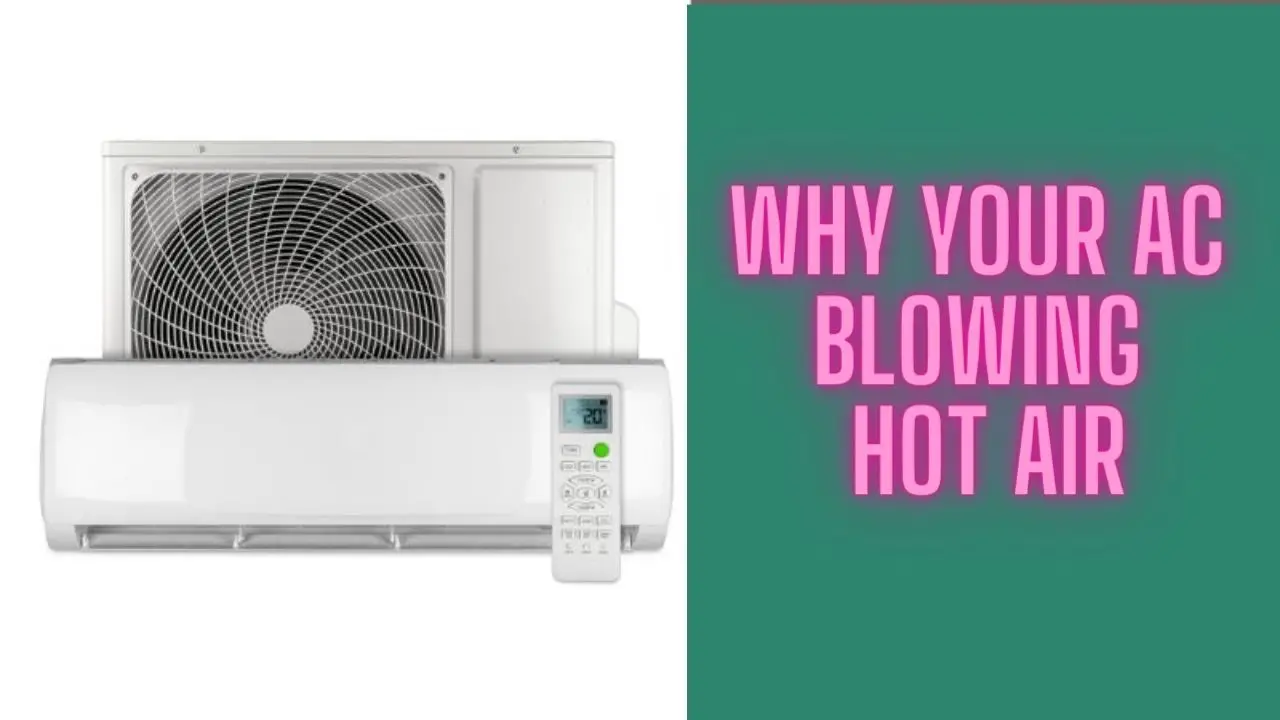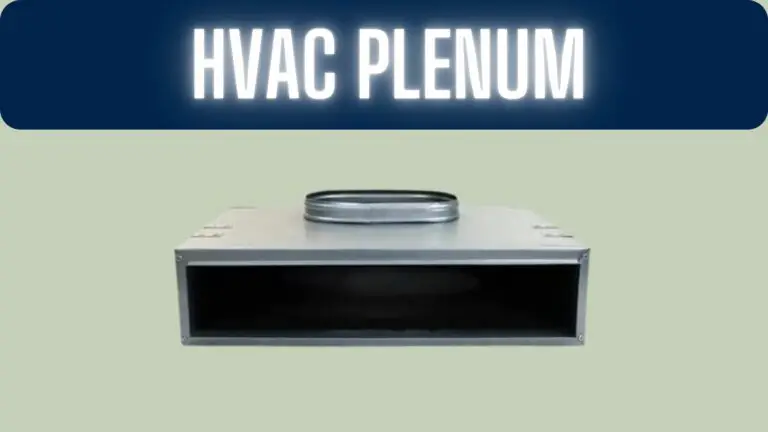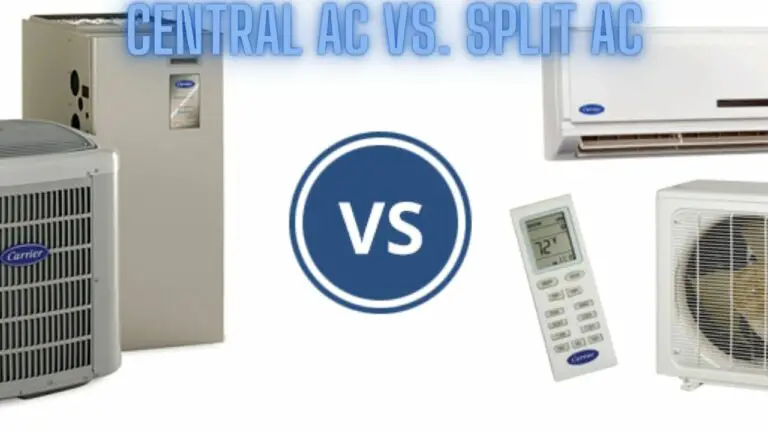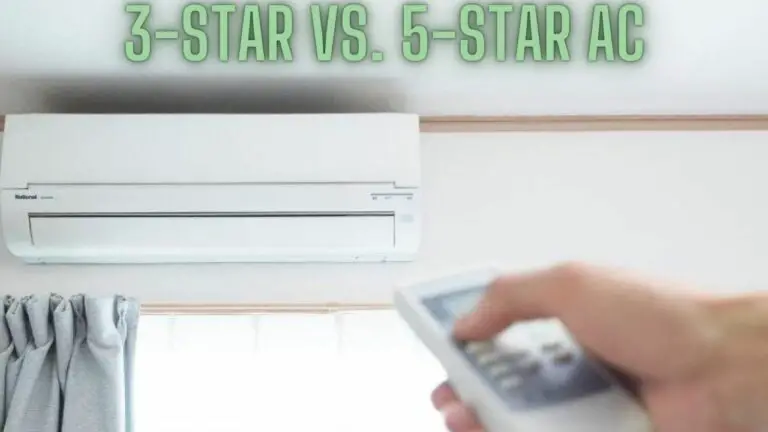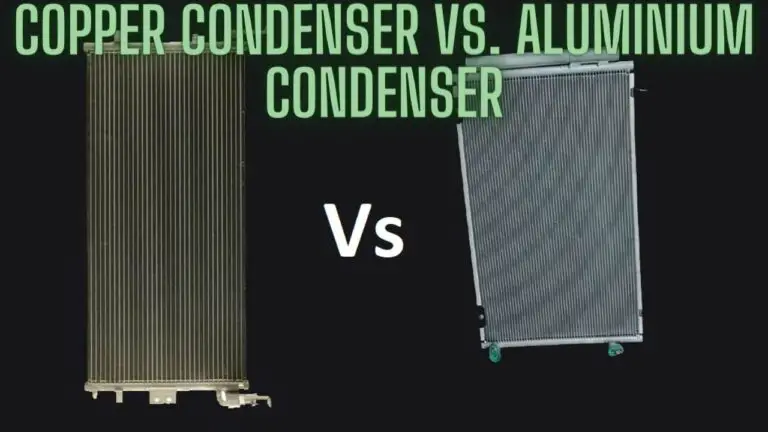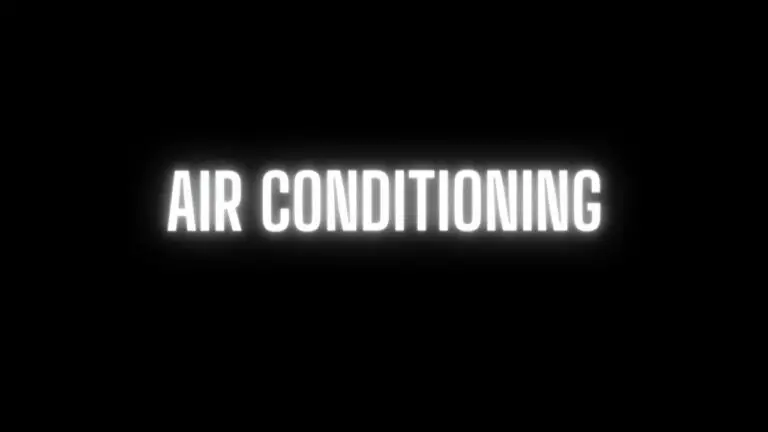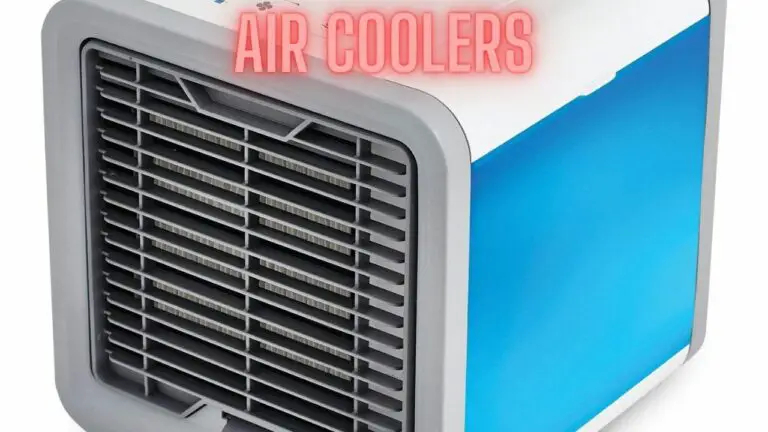Common Reasons Why Your AC is Blowing Hot Air and How to Fix It
Introduction
Your air conditioning system is supposed to keep your home cool and comfortable, especially during the scorching heat of summer. However, it can be frustrating when your AC starts blowing hot air instead of the refreshing cool breeze you expect. Understanding the potential reasons behind this issue is essential for troubleshooting and resolving the problem effectively.
In this guide, we’ll explore the common reasons why your AC may be blowing hot air. From thermostat issues to refrigerant leaks, we’ll cover the most frequent culprits behind this frustrating problem. By understanding these potential causes, you’ll be better equipped to diagnose the issue and take the necessary steps to restore your AC’s cooling performance.
Whether you’re a homeowner looking to troubleshoot the problem yourself or seeking insights to communicate effectively with HVAC professionals, this guide aims to provide you with the knowledge needed to address hot air blowing from your air conditioning system. Let’s dive in and explore the potential causes behind this common HVAC issue.
Understanding How Your AC Works
Before delving into the reasons why your AC might be blowing hot air, it’s essential to have a basic understanding of how your air conditioning system operates. Air conditioners utilize a complex process to remove heat from your indoor environment and transfer it outside, resulting in cooler air circulated throughout your home. Here’s a simplified overview of how this process typically works:
- Evaporation: The air conditioning process begins with the evaporation of a refrigerant, typically a substance like R-410A or R-22, within the evaporator coil located inside your home. This refrigerant absorbs heat from the indoor air, causing it to evaporate and turn into a low-pressure gas.
- Compression: The gaseous refrigerant is then compressed by the compressor unit of your AC system. As it’s compressed, the refrigerant’s temperature and pressure increase significantly, transforming it into a high-pressure, high-temperature gas.
- Condensation: The hot, pressurized refrigerant gas travels to the condenser coil located in the outdoor unit of your air conditioner. Here, the heat is released into the outside air as the refrigerant condenses back into a liquid state.
- Expansion: The liquid refrigerant, now at a high pressure, passes through an expansion valve or metering device, where its pressure is reduced. This reduction in pressure causes the refrigerant’s temperature to drop significantly.
- Heat Exchange: The cool liquid refrigerant then flows back into the evaporator coil inside your home, where the cycle begins anew. As warm indoor air blows over the cold evaporator coil, heat from the air is absorbed by the refrigerant, cooling the air that is subsequently circulated throughout your home by the blower fan.
This continuous cycle of evaporation, compression, condensation, and expansion allows your air conditioner to remove heat from your indoor environment and maintain a comfortable temperature inside your home.
By understanding this basic operating principle of air conditioning systems, you’ll be better equipped to identify potential issues that may be causing your AC to blow hot air and take appropriate steps to address them.
Common Reasons for AC Blowing Hot Air
- Thermostat Issues: Incorrect thermostat settings or a malfunctioning thermostat can cause your air conditioner to blow hot air. Ensure that your thermostat is set to the appropriate temperature and mode (cooling), and check for any calibration issues or faulty wiring that may be affecting its operation.
- Refrigerant Leaks: Low refrigerant levels due to leaks in the refrigerant lines can impair your AC’s ability to cool properly. Signs of a refrigerant leak include ice buildup on the refrigerant lines or evaporator coil, hissing sounds coming from the unit, and decreased cooling performance. A professional HVAC technician can locate and repair refrigerant leaks.
- Dirty Air Filters: Dirty or clogged air filters restrict airflow to your air conditioner, reducing its efficiency and potentially causing it to blow hot air. Regularly replace or clean your air filters according to the manufacturer’s recommendations to ensure proper airflow and cooling performance.
- Electrical Problems: Faulty electrical connections, damaged wiring, or malfunctioning components such as capacitors or relays can prevent your air conditioner from operating correctly. These issues may cause your AC to blow hot air or fail to turn on altogether. It’s crucial to have a qualified technician inspect and repair any electrical problems to prevent further damage.
- Condenser Unit Malfunction: Problems with the outdoor condenser unit, such as a malfunctioning fan motor, dirty condenser coils, or debris obstructing airflow, can hinder the heat transfer process and cause your AC to blow hot air. Regular maintenance, including cleaning the condenser coils and removing debris, can help prevent these issues.
- Frozen Evaporator Coil: A frozen evaporator coil can restrict airflow and prevent your air conditioner from cooling properly. Common causes of a frozen evaporator coil include dirty air filters, refrigerant leaks, or airflow restrictions. If you notice ice buildup on the evaporator coil, turn off your AC to allow the ice to melt and address the underlying cause.
- Blocked or Restricted Airflow: Obstructions in the air ducts, vents, or registers can impede airflow and diminish your AC’s cooling performance. Ensure that all vents are open and unobstructed, and inspect your ductwork for any blockages or leaks. Cleaning or repairing ductwork may be necessary to restore proper airflow.
- Compressor Problems: The compressor is a critical component of your air conditioning system responsible for pressurizing the refrigerant and facilitating heat exchange. Issues such as compressor failure, mechanical wear and tear, or refrigerant-related problems can result in your AC blowing hot air. Professional diagnosis and repair are necessary for compressor issues.
Identifying and addressing these common reasons for AC blowing hot air promptly can help restore your air conditioner’s cooling performance and prevent further damage to the system. If you’re unable to resolve the issue on your own, it’s advisable to contact a qualified HVAC technician for professional diagnosis and repair.
Troubleshooting Steps
When your air conditioner is blowing hot air, it’s essential to take systematic steps to identify and address the underlying issue. Here are some troubleshooting steps you can follow:
- Check Thermostat Settings: Start by ensuring that your thermostat is set to the cooling mode and the desired temperature. Verify that the thermostat display is functioning correctly and that the batteries, if applicable, are not depleted.
- Inspect Air Filters: Dirty or clogged air filters can restrict airflow, leading to reduced cooling efficiency. Remove and inspect the air filters, and if they’re dirty, clean or replace them according to the manufacturer’s recommendations.
- Examine Vents and Registers: Ensure that all vents and registers throughout your home are open and unobstructed. Blocked or closed vents can impede airflow and cause uneven cooling.
- Check Outdoor Unit: Inspect the outdoor condenser unit for any visible signs of damage, such as bent fins, debris buildup, or vegetation encroachment. Clear away any debris around the unit and ensure that airflow is not obstructed.
- Inspect Refrigerant Lines: Check the refrigerant lines for signs of damage or leaks, such as oil stains, corrosion, or hissing sounds. If you suspect a refrigerant leak, it’s crucial to contact a professional HVAC technician for diagnosis and repair.
- Verify Circuit Breakers: Check the circuit breakers or fuses associated with your air conditioning system to ensure they are not tripped or blown. Reset any tripped breakers and replace blown fuses as necessary.
- Clean Evaporator and Condenser Coils: Dirty coils can impair heat transfer and cooling efficiency. Carefully clean the evaporator and condenser coils using a soft brush and coil cleaner, following the manufacturer’s instructions.
- Thaw Frozen Components: If you notice ice buildup on the evaporator coil or refrigerant lines, turn off your air conditioner to allow the ice to melt. Inspect for underlying causes such as dirty air filters, refrigerant leaks, or airflow restrictions.
- Inspect Electrical Connections: Visually inspect the electrical connections, wiring, and terminals in your air conditioning system for signs of damage or corrosion. Tighten loose connections and replace damaged wiring as needed.
- Test Capacitor and Relays: Use a multimeter to test the capacitance and continuity of the capacitor and relays in your air conditioning system. Replace any components that are out of spec or failing.
- Call a Professional Technician: If you’re unable to identify or resolve the issue on your own, it’s advisable to contact a qualified HVAC technician for professional diagnosis and repair. They have the expertise and equipment necessary to pinpoint and address complex issues with your air conditioning system.
By following these troubleshooting steps systematically, you can identify and address common issues that may be causing your air conditioner to blow hot air. Regular maintenance and prompt repairs can help ensure the efficient and reliable operation of your AC system, keeping your home cool and comfortable throughout the year.
DIY Fixes vs. Professional Repairs
When your air conditioner is blowing hot air, you may wonder whether you should attempt to fix the problem yourself or seek professional assistance. Here’s a comparison of DIY fixes and professional repairs to help you decide:
- DIY Fixes:
- Advantages:
- Cost-effective: DIY fixes typically involve minimal or no expense, especially if you already have the necessary tools and materials.
- Immediate action: You can attempt DIY fixes immediately without waiting for a professional technician to arrive.
- Learning opportunity: DIY repairs can provide valuable learning experiences and help you become more familiar with your air conditioning system.
- Disadvantages:
- Limited expertise: DIY repairs may not always address the underlying issue correctly, especially if you lack experience or technical knowledge.
- Safety concerns: Working with electrical components or refrigerants can be hazardous without proper training and precautions.
- Risk of further damage: Incorrect DIY repairs could potentially worsen the problem or cause additional damage to your air conditioning system.
- Advantages:
- Professional Repairs:
- Advantages:
- Expertise and experience: Professional HVAC technicians have the training, experience, and specialized tools to diagnose and repair complex air conditioning issues accurately.
- Guaranteed results: Professional repairs are backed by warranties or guarantees, providing assurance that the problem will be resolved effectively.
- Safety compliance: HVAC professionals adhere to safety standards and regulations when working on your air conditioning system, reducing the risk of accidents or injuries.
- Disadvantages:
- Higher cost: Professional repairs typically involve service fees and labor costs, which may be higher than DIY solutions.
- Scheduling constraints: You may need to wait for an available appointment with a professional technician, especially during peak seasons or emergencies.
- Less hands-on involvement: While professional repairs offer convenience, you may have less direct involvement in the repair process compared to DIY fixes.
- Advantages:
Ultimately, the decision between DIY fixes and professional repairs depends on factors such as your comfort level with DIY projects, the complexity of the issue, and your budget. For minor issues or routine maintenance tasks, DIY fixes may suffice. However, for more complex problems or safety-sensitive repairs involving electrical or refrigeration components, it’s advisable to seek the expertise of a qualified HVAC technician. Investing in professional repairs ensures the proper functioning and longevity of your air conditioning system, ultimately saving you time, money, and frustration in the long run.
Maintenance Tips to Prevent AC Issues
Regular maintenance is essential for keeping your air conditioning system running efficiently and preventing common issues like blowing hot air. Here are some maintenance tips to help you avoid AC problems:
- Change Air Filters Regularly: Dirty or clogged air filters restrict airflow, reduce efficiency, and strain your AC system. Check your air filters monthly and replace them every 1-3 months, or as recommended by the manufacturer.
- Clean Evaporator and Condenser Coils: Dust and debris can accumulate on the evaporator and condenser coils, hindering heat transfer and reducing cooling efficiency. Clean the coils annually or as needed using a soft brush and coil cleaner.
- Clear Debris Around Outdoor Unit: Keep the area around your outdoor condenser unit clear of debris, such as leaves, grass clippings, and branches. Ensure at least two feet of clearance around the unit to allow for proper airflow.
- Inspect and Clean Air Vents and Registers: Regularly inspect air vents and registers throughout your home to ensure they’re open and unobstructed. Vacuum away dust and debris to maintain optimal airflow.
- Check Refrigerant Levels: Low refrigerant levels due to leaks can impair your AC’s cooling performance. Schedule annual maintenance with a professional technician to check refrigerant levels and repair any leaks.
- Inspect Ductwork for Leaks: Leaky ducts can result in cooled air escaping before reaching your living spaces, reducing efficiency and comfort. Seal any visible leaks or hire a professional to inspect and repair ductwork as needed.
- Calibrate Thermostat Settings: Verify that your thermostat is accurately calibrated and functioning correctly. Consider upgrading to a programmable or smart thermostat for improved energy efficiency and comfort control.
- Schedule Professional Maintenance: Invest in annual maintenance visits from a qualified HVAC technician to inspect, clean, and tune up your air conditioning system. Professional maintenance helps identify potential issues early and keeps your AC running smoothly.
- Keep Indoor Humidity Levels in Check: High indoor humidity can make your home feel warmer and strain your AC system. Use a dehumidifier if necessary to maintain indoor humidity levels between 30-50%.
- Monitor AC Performance: Pay attention to any changes in your AC’s performance, such as unusual noises, reduced airflow, or temperature fluctuations. Promptly address any issues to prevent further damage and ensure efficient operation.
By following these maintenance tips, you can prolong the lifespan of your air conditioning system, improve energy efficiency, and minimize the risk of AC issues such as blowing hot air. Consistent upkeep helps keep your home comfortable and your AC running smoothly throughout the cooling season.
Common Reasons Why Your AC is Blowing Hot Air FAQs
- Q: Why is my AC blowing hot air instead of cold air?
- A: Several factors could cause this issue, including thermostat problems, refrigerant leaks, dirty air filters, electrical issues, or a malfunctioning compressor.
- Q: How can I tell if my AC has a refrigerant leak?
- A: Signs of a refrigerant leak may include reduced cooling performance, hissing sounds near the indoor or outdoor unit, ice buildup on the refrigerant lines or evaporator coil, or higher-than-normal electricity bills.
- Q: Can I fix a refrigerant leak myself?
- A: Fixing a refrigerant leak typically requires specialized equipment and expertise. It’s best to contact a qualified HVAC technician to locate and repair refrigerant leaks safely and effectively.
- Q: How often should I replace my air filters?
- A: It’s recommended to check your air filters monthly and replace them every 1-3 months, depending on factors such as filter type, household occupancy, and indoor air quality.
- Q: Why is it important to clean the evaporator and condenser coils?
- A: Dirty coils can impede heat transfer and reduce your AC’s cooling efficiency. Regularly cleaning the evaporator and condenser coils helps maintain optimal performance and prolongs the lifespan of your air conditioning system.
- Q: Can electrical problems cause my AC to blow hot air?
- A: Yes, faulty electrical connections, damaged wiring, or malfunctioning components such as capacitors or relays can prevent your AC from cooling properly. It’s essential to have a qualified technician inspect and repair any electrical issues.
- Q: How can I prevent my AC from blowing hot air in the future?
- A: Regular maintenance, including changing air filters, cleaning coils, scheduling professional tune-ups, and addressing issues promptly, can help prevent AC problems and ensure efficient operation.
- Q: Is it normal for my AC to blow hot air occasionally?
- A: Occasional warm air may be normal during certain operating conditions, such as when the AC first starts up or during defrost cycles. However, persistent or frequent hot air blowing indicates a problem that should be addressed.
- Q: Can I troubleshoot and repair my AC myself?
- A: While some DIY troubleshooting and maintenance tasks are feasible for homeowners, complex issues or those involving electrical or refrigeration components are best left to trained professionals to avoid safety hazards and further damage.
- Q: How can I find a reliable HVAC technician for repairs?
- A: Look for licensed and insured HVAC contractors with positive reviews and experience in diagnosing and repairing air conditioning systems. You can ask for recommendations from friends, family, or neighbors, or research online for reputable HVAC companies in your area.
These FAQs provide valuable insights into common concerns regarding AC issues and can help homeowners better understand and address the reasons why their AC may be blowing hot air. If further assistance is needed, consulting with a qualified HVAC technician is always advisable.
Conclusion
Maintaining a properly functioning air conditioning system is essential for keeping your home comfortable, especially during the hot summer months. When your AC starts blowing hot air, it can be frustrating and disruptive to your indoor comfort. However, by understanding the common reasons behind this issue and following appropriate troubleshooting steps, you can often identify and resolve the problem efficiently.
In this guide, we’ve explored the various factors that can cause an air conditioner to blow hot air, including thermostat issues, refrigerant leaks, dirty air filters, electrical problems, and more. By addressing these issues promptly and effectively, you can restore your AC’s cooling performance and ensure your comfort.
Additionally, we’ve discussed the importance of regular maintenance in preventing AC issues and prolonging the lifespan of your air conditioning system. Simple tasks such as changing air filters, cleaning coils, and scheduling professional maintenance visits can go a long way toward keeping your AC running smoothly and efficiently.
Whether you choose to attempt DIY fixes or seek professional repairs, it’s crucial to prioritize safety and accuracy in addressing AC problems. While DIY solutions may be suitable for minor issues, complex problems or those involving electrical or refrigeration components are best handled by qualified HVAC technicians.
By following the maintenance tips provided and staying vigilant for signs of AC issues, you can minimize the risk of your air conditioner blowing hot air and enjoy consistent cooling comfort in your home. Remember to schedule regular maintenance, address problems promptly, and seek professional assistance when needed to keep your AC in top condition.
With proactive maintenance and timely repairs, you can ensure that your air conditioning system performs optimally, keeping you cool and comfortable year-round. Thank you for reading, and we wish you a pleasant and comfortable indoor environment.

